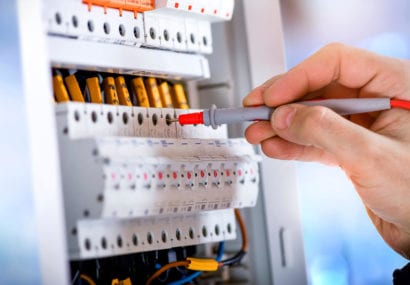EV Charger Installation Plymouth
With the government announcing to ban the sale of new petrol and diesel vehicles from 2030, more people are looking to electric vehicles as a more viable option. Only a few years ago electric vehicles were not considered by many to be a very viable, due to both the cost of the vehicles themselves and the distance in which they could travel.
Fortunately, over the past couple of years the technology within the EV sector has come on leaps and bounds, making electric vehicles a much more viable option for people wanting to both save on running cost, as well as trying to minimise their carbon footprint.
At Care Projects, we can install various different car chargers and are also approved by the office of low emissions vehicles (OLEV), meaning our customers save up to £350 per charger installed.
Am I eligible for the £350 OLEV funding?
In order to be eligible for OLEV funding you must be a homeowner or have permission from your landlord and have access to off-street parking. As well as either own an approved electric vehicle or have a lease contract of at least 6 months in order to qualify.
What are the running costs for an electric vehicle?
This depends greatly on the electric vehicle you buy and how you wish to charge it. However, there are many studies and manufactures claiming running cost of between 3-6 pence per mile.
When compared to petrol (15.8 ppm) or diesel (13.4 ppm) the savings can become very clear.
Where else can I charge my electric vehicle?
Public EV charge points are increasing by the day and can often be found in the carparks of supermarkets, restaurants and other public parking areas of Plymouth. There are a number of apps which can be downloaded with up to date charging locations. A popular app is Zapmap, which has thousands of listed EV charge points.

How long does it take to charge an electric vehicle?
Once again, this does greatly depend on the vehicle you have, charger being used and how low you battery is. On top of this, there are also slow, fast and rapid chargers available which can fully charge a vehicle in anywhere between 30 minutes and 10 hours.
With many domestic homes only able to have “slow chargers” installed. 10 hours can seem a very long time. However, with many cars offering over 200 miles to a full charge, It is unlikely most people will completely drain a battery every day. Plus, your car will normally be charged at night whist you sleep.
What is the difference between Type 1 and Type 2 chargers?
For charging at home, Type 1 and Type 2 are the most commonly used connections between the charger and the vehicle. The charging type you’ll require, will be determined by the electric vehicle you purchase. Type 1 connectors have 5-pin plug and are only capable of handling single phase power. Whilst Type 2 is rapidly becoming the most popular charging connection, which can handle both single and three phase power though a 7-pin plug.













